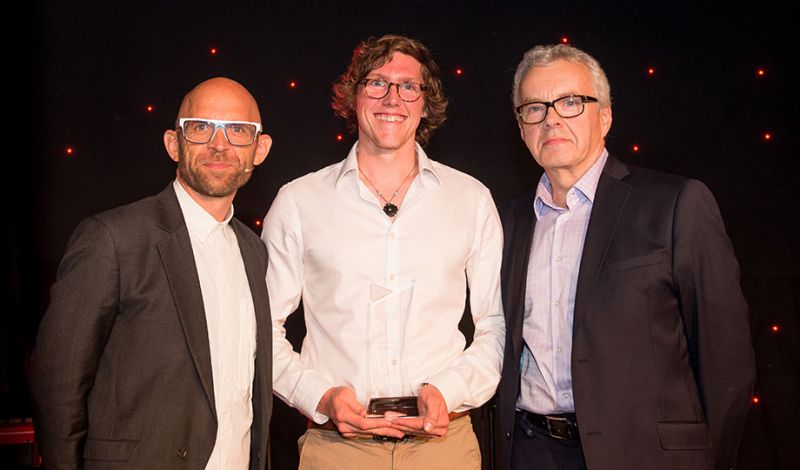Best University Technology Award for Water Treatment Start-up
Published on by Water Network Research, Official research team of The Water Network in Business
WASE – a social enterprise that focuses on developing technologies for sustainable water treatment, energy production and storage – has been crowned Best University Technology at the UK Energy Innovation Awards 2017.
By Joe Buchanunn

Source: Brunel
Brunel University London PhD student Thomas Fudge, WASE’s founder and Technology Director, received the award from The Gadget Show’s host Jason Bradbury at the Energy Innovation Centre’s event last week, in front of over 300 key players in the energy sector and innovation community.
2.3 billion people across the world, in developing and remote communities, have inadequate sanitation and no access to clean cooking fuels. WASE provides cost-effective, decentralised sanitation solutions for these communities, allowing them to turn wastewater into biogas and fertilisers and to recover water.
Through treating waste locally and in its concentrated form, the environmental impact of treatment is reduced, while the approach is more cost-effective as a result of cheaper infrastructure and the recovery of materials from the waste stream.
Sanitation can be profitable
“I was really surprised by the win,” said Tom. “WASE was up against other businesses and universities disrupting the energy sector, and the competition was fierce. But I’m thrilled that WASE’s potential has been recognised this way.
“We pollute water – our most valuable resource – every day with chemical cleaners and flushing our waste. Transporting it to a few central locations to be treated is costly, wasteful and not without environmental damage.
“My company’s approach is that wastewater treatment should be considered in a holistic way, looking at what can be recovered from this waste stream, rather than what needs to be removed.
"Through this approach, we want to show that sanitation can be profitable, in order to increase private investment in this area to try and tackle the current crisis.
“Although this has clear benefits for areas currently without functioning waste infrastructure, this model also has application in developed countries.”
WASE’s work ties in with Tom’s PhD research at Brunel into microbial electrolysis cells and their application for wastewater treatment in developed and developing communities, which he is undertaking in the College of Engineering, Design and Physical Sciences. This follows on from his Brunel MSc in Sustainability, Entrepreneurship and Design, from which he graduated in 2016.
Read full article: Brunel University London
Visit WASE
Media
Taxonomy
- Drinking Water Security
- Treatment
- Drinking Water Treatment
- Sanitation
- Water & Sanitation
- Drinking Water Managment
- Drinking Water
- water treatment
- Water Sanitation & Hygiene (WASH)